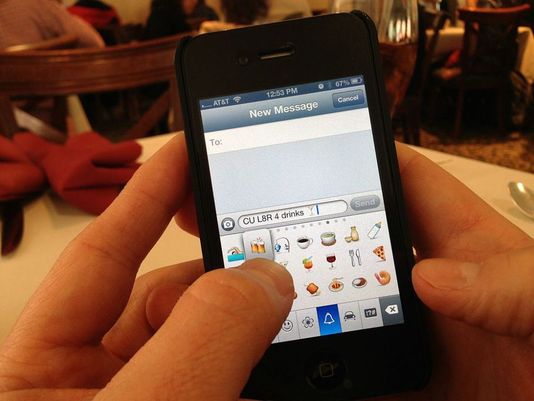
California’s Public Utilities Commission is considering a plan that would charge mobile phone users a fee for sending text messages, according to recent public law filings.
The proposal is partially due to landline-era legislation coupled with the fact the people are shifting patterns away from voice calls in favor of texting.
California is determining whether surcharges and user fees on text messaging comply with Public Purpose Programs, which use tax revenue to make telecommunications services accessible to low-income residents. The programs, which date to the 1930s, were given a face-lift in the late 1990s, allowing individual states to impose requirements to preserve what’s referred to as a “universal service.”
During the rise of the internet, the telecommunications industry was able to elude these taxes by offering “information services” like email and web browsing.
However, as mobile phone users shifted their behavior away from making phone calls, voice call revenue for these state programs has dropped by about a third, from $16.5 billion in 2011 to $11.3 billion in 2017, according to law filings.
Meanwhile, the budget for subsidizing poorer users has risen by almost half, from $670 million in 2011 to $998 million in 2017, the filings said.
The wireless industry argues added fees would put carriers at a higher disadvantage since messaging services like Apple’s iMessage, WhatsApp and Facebook Messenger would not be charged under the proposed legislation.
The Cellular Telecommunications Industry Association, a trade organization that represents the U.S. wireless communications industry, said in legal filings to the California commission that it has “repeatedly” demonstrated that text messaging is, in fact, an information service.
“Subjecting wireless carriers’ text messaging traffic to surcharges that cannot be applied to the lion’s share of messaging traffic and messaging providers is illogical, anticompetitive and harmful to consumers,” CTIA said in the filings.
While state regulators aren’t scheduled to vote on the proposal until next month, wireless customers have taken to social media to express their concerns about the bill.
Twitter user @Myblueheavenn writes, “Of course California wants to tax your text messages. They would tax your toilet use if they could.”
Twitter user @Kmoliverio1 writes: OMG! Now a California proposal wants to tax text-messaging, retroactive for 5 years.
























